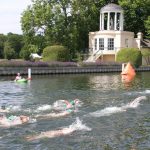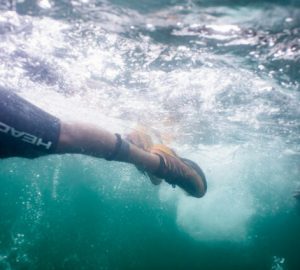Why swimming is like music
With running or cycling most people can improve simply by going out and doing more of the activity. Performance is driven largely by strength and fitness. In contrast, swimming requires technical mastery to do well. Cycling and running fast does of course require the development of certain skills as well, just as swimming fast requires strength and fitness, but the proportions are different.
In the context of teaching youngsters to swim, one coach told us it takes about 12 years to develop top-level technical skills, and 12 weeks to reach peak fitness. We don’t know how accurate those numbers are but the point is well made.
If you are new to swimming and unfit then you should be able to quickly make performance gains just by improving your fitness. Unless you refine your technique at the same time though, you’re likely to quickly reach a plateau.
About seven years ago one of my children started to learn the piano. At the time I thought I’d learn with him but at first I thought the exercises and tunes he was playing were too trivial to bother with. I decided I’d start later once he progressed to something more interesting. But somehow I missed the point were the exercises transitioned from easy and boring to interesting and musical. Now, he can play really well and I haven’t progressed at all. It’s unlikely I will ever catch up.
Similarly with swimming, sometimes coaches ask us to do exercises that seem ridiculously easy. “How can they be doing any good when they don’t even make you out of breath?” you hear people ask. But they’re not designed to build our fitness but to develop our skills and comfort in the water.
When you learn an instrument you often practise scales. They don’t sound particularly good and they’re not always fun to do. The results aren’t immediate either but if you don’t do them you may later find weaknesses in your technique that prevent you playing real music well.
You could start instead by trying to learn a complicated piece. After a few weeks you might have the satisfaction of being able to play something that sounds vaguely recognisable, but it’s likely you will lack the control to play it perfectly. Unless you go back to basics you’ll find it hard to improve further.
With swimming you could just attempt to swim front crawl full stroke as fast as possible for as long you can. It will look ugly but after a few weeks you’ll be able to swim faster. But when your fitness drops, you’ll be back to your original speed.
If instead you spend time working on technique the gains will accrue more slowly, but they will eventually be much greater and they will stay with you even if your fitness declines. A trained musician who picks up her instrument after a few years of non-playing will quickly find the right notes again. She may have lost some of her musical ‘fitness’ but you would still recognise her as someone who can play the instrument. Likewise if you put an ex-swimmer back in the water after a few years out you will immediately see he can swim, even if he can’t manage the speeds of his youth.
The same coach referred to above told another story of a swimmer he’d coached to Olympic level. “He wasn’t the biggest nor was he the strongest but he had absolutely flawless technique and that took him to the top,” he says.
So next time your coach asks you to do some drills, don’t groan or rush through them. Instead do them to the best of your ability. Learn to feel exactly what your hands, feet and body are doing in the water. Concentrate. It might not help you win your next week’s race, but it will help you come closer next year and in five years time.






